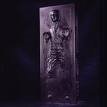 I recently heard my pastor publicly accused of trying to make our church in Marshall, Michigan a 'Roman Catholic' church. The brothers and sisters in Christ who suggested this were, quite frankly, just plain silly. They have a grave need for catechesis, especially since several of them actually teach Sunday School.
I recently heard my pastor publicly accused of trying to make our church in Marshall, Michigan a 'Roman Catholic' church. The brothers and sisters in Christ who suggested this were, quite frankly, just plain silly. They have a grave need for catechesis, especially since several of them actually teach Sunday School. The accusations reminded me of an Issues, Etc. interview from about three or four years ago in which my favorite regular guest on that fine program, Pastor Will Weedon, read some apposite quotations from the founding father of the Lutheran Church-Missouri Synod, C.F.W. Walther.
I tried to find the episode, but couldn't, so I wrote Pastor Weedon, and he was kind enough to, amazingly, almost immediately send me the following:
No one would ever argue that C.F.W. Walther was a true Lutheran! This man who was so instrumental in the founding of the Missouri Synod wished to be nothing other than a faithful Lutheran. I’d like to offer for your consideration, then, some of his statements about the liturgy and the fear of being “too catholic”:Thank you, Pastor Weedon!
"It is too bad that such entirely different ceremonies prevail in our Synod, and that no liturgy at all has yet been introduced in many congregations. The prejudice especially against the responsive chanting of pastor and congregation is of course still very great with many people - this does not, however, alter the fact that it is very foolish. The pious church father Augustine said, “Qui cantat, bis orat - he who sings prays twice."
- C.F.W. Walther
Explanation of Thesis 17 in “The True Visible Church”
Below is an excerpt from a Reformation sermon delivered by C. F. W. Walther in 1858. Source is listed at bottom.
"It is true that of all the church bodies which have left the papacy, it is precisely the Lutheran Church which is accused of retaining many papal abuses and of having been the least successful in cleansing itself. It is pointed out, for example, that in our church priestly clothing, church ornamentation, pictures, altar, crucifixes, candles, confession, the sign of the cross, and the like are still apparent. But, my friends, whoever regards these innocent things as vestiges of the papacy knows neither what the papacy is, nor what the Bible teaches. The very fact that the Lutheran Reformation was not aimed at indifferent adiaphora, but retained those things which were in harmony with God's Word, shows that it was not a disorderly revolution, but a Biblical reformation; for whatever did not agree with God's Word was unrelentingly cleansed from the church by the Lutheran Reformation even though it seemed to glow with angelic holiness.
"The Lutheran Reformation, however, was complete not only in the destruction and tearing down of all the idols which had been erected in the church, but also in bringing forth its treasures and in setting up its truly sacred possessions. Luther followed not only the principle, "truth and nothing but the truth," but also the principle, "and the whole truth." Therefore, through his efforts, not only this and that truth, not just half the truth, but the whole truth of Holy Scripture was opened for the church, was used, and made the Christians' common possession. Not only did the Lutheran Reformation get all its doctrines out of the marble quarry of the written Word of God, but there is no doctrine of the Word of God which it did not place on the candlesticks of the church like a heavenly light in its purity. This includes the doctrine concerning God as well as the doctrine concerning man; the doctrine concerning the foundation of salvation as well as those concerning the means of salvation and the order of salvation; the doctrine concerning faith as well as those concerning love and hope. The whole counsel of God for man's salvation was clearly and purely brought to the light of day out of the gold mine of Scripture, beginning with the doctrine of justification; namely, that a man is righteous before God and can be saved only by grace through faith in Christ without the merits of works. This laid the foundation on which the whole Christian doctrinal edifice rises like a holy diamond temple. In its holy of holies the New Testament mercy seat of the holy sacraments and the absolution is enthroned."
(Excerpt of C. F. W. Walther's 1858 Reformation sermon published in "Gottesdienst: A Quarterly Journal of the Evangelical-Lutheran Liturgy" Michaelmas 2000, Volume 8 Number 3 (2000:3), p. 12. "Gottesdienst" provides us with more from the same sermon which they reprint from: "The Word of His Grace: Sermon Selections, C. F. W. Walther", Lake Mills, Iowa: Graphic Publishing, 1978, pp. 50-53.)
In an essay delivered to a district convention, Walther said:
“We refuse to be guided by those who are offended by our church customs. We adhere to them all the more firmly when someone wants to cause us to have a guilty conscience on account of them…. It is truly distressing that many of our fellow Christians find the difference between Lutheranism and Papism in outward things. It is a pity and a dreadful cowardice when one sacrifices the good ancient church customs to please the deluded American sects, lest they accuse us of being papistic (i.e., too catholic!). Indeed! Am I to be afraid of a Methodist, who perverts the saving Word, or be ashamed in the matter of my good cause, and not rather rejoice that the sects can tell by our ceremonies that I do not belong to them?”
We are not insisting that there be uniformity of perception or feeling or of taste among all believing Christians – neither dare anyone demand that all be minded as he is. Nevertheless it remains true that the Lutheran liturgy distinguishes Lutheran worship from the worship of other churches to such an extend that the houses of worship of the latter look like lecture halls in which the hearers are addressed or instructed (NOTE: if he were writing today, he’d no doubt add: they look like movie theatres in which the hearers are entertained!), while our churches are in truth houses of prayer in which Christians serve the great God publicly before the world. (Essays for the Church, Volume 1, p. 194 (St. Louis, CPH, 1992).
Woof!










No comments:
Post a Comment